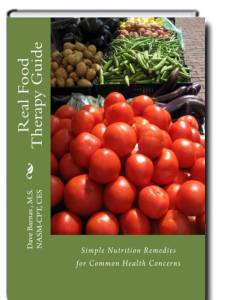Fish oil, a known supplement for improving joint and heart health may be getting a bump in the beneficial effects department by krill oil.
Like fish oil, krill oil provides the healthful omega-3 fatty acids that are known to reduce inflammation throughout the body, alleviating symptoms associated with arthritis and heart disease.
The helpful fatty acids, DHA and EPA, are found in both fish and krill oil, however, krill oil surpasses fish oil in the amount of EPA. The added effect of EPA may create a boost in the therapeutic effects of krill oil making krill oil the new frontrunner.
Derived from small crustaceans (picture below), here’s a brief summary of the recently published clinical research of the potential health benefits of krill oil.*
Arthritis Symptoms
Krill oil helped people with arthritis by reducing pain, stiffness, loss of function, and inflammation as measured by serum C-reactive protein, or CRP, which is linked with chronic inflammation.
Heart Health
It’s possible to attain the same heart health levels of omega-3s recommended by the American Heart Association from krill oil supplements. Like fish oil pills, krill oil pills can reduce the risk of heart attacks and strokes.
PMS
Krill oil supplements were statistically more effective in managing self-reported emotional symptoms, breast tenderness, and joint pain.
Key Takeaway
If you take a krill oil dietary supplement, be sure its quality has been approved by independent testing (like the one shown below) and consult a doctor because both fish oil and krill oil may interact with some drugs, including blood thinners.
Best Option for Safety, Efficacy and Value
Based on significant research from private companies including UPS, NSF and ConsumerLab.com, one product stands out.
Viva Labs Krill Oil Softgels – It offers a more concentrated form of omega-3 fatty acids. This brand offers the lowest cost per serving among the Krill oils approved by independent testing, but it is more expensive than the fish oils.
Selected Potential Side Effects
Upset stomach, nausea, and loose stools. Very high doses can increase levels of LDL (bad) cholesterol in some people or increase the chance of bleeding.
Selected Drug Interactions
Might increase the effect of blood-thinning drugs and high blood pressure medications.
Suggested Dosage
No recommended daily intake of EPA or DHA is given in the United States for healthy people, but some countries suggest a 300-500 mg cumulative combination of EPA and DHA. For people with coronary artery disease (CAD), this recommendation also holds true when looking to reduce risk of coronary events such as heart attacks. Additional evidence based suggestions include (by condition):
High triglycerides, 465 mg of EPA and 375 mg of DHA
Depression, 1670 mg EPA and 830 mg DHA
Resistance Training, 180 mg EPA and 120 mg DHA per day, twice a day
To decrease risk for developing Retinal Disease, a combination of EPA and DHA of 200 mg per day.
Reference Guide for for other Tested (Safe) and True (Effective) Dietary Supplements
Tested and True: Multivitamins
Tested and True: Coenzyme Q10 (CoQ-10)
Tested and True: Glucosamine and Chondroitin
Tested and True: Muscle Enhancers – Creatine
Tested and True: Muscle Enhancers – Branched Chain Amino Acids (BCAAs)
Tested and True: Nutrition Bars
Tested and True: Nutrition Drinks & Powders
Tested and True: Weight Loss Accelerators and Appetite Controllers
Tested and True: Mood Booster SAM-e
Tested and True: Mood Booster St. Johns’ Wort
Not Yet a subscriber?
Join the Readership!
&
Get a Free Gift…
Free Real Food Therapy Guide
*reference: Consumer Reports Health



